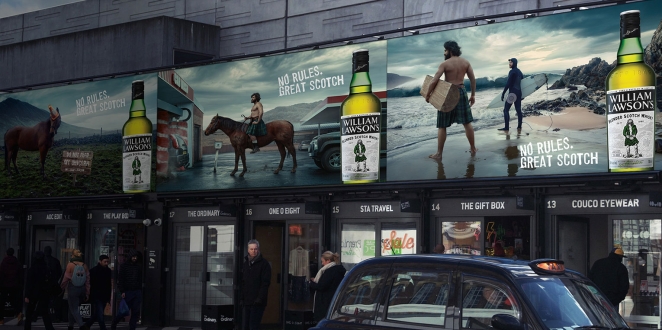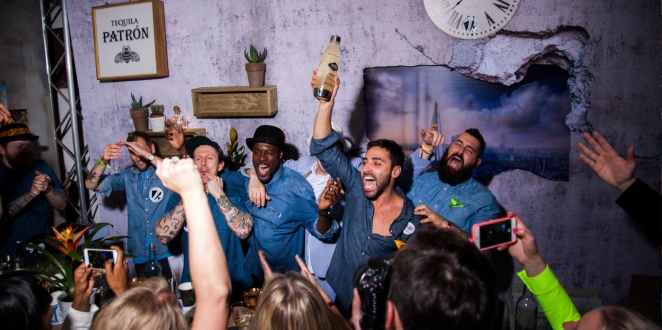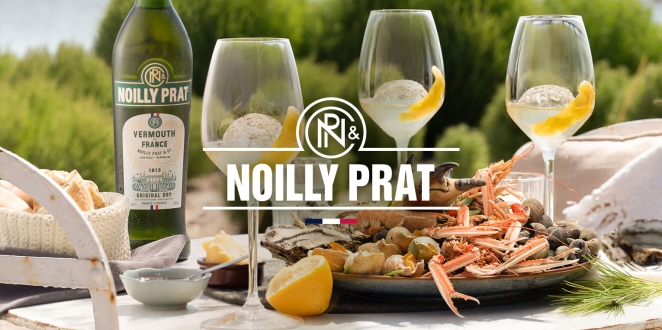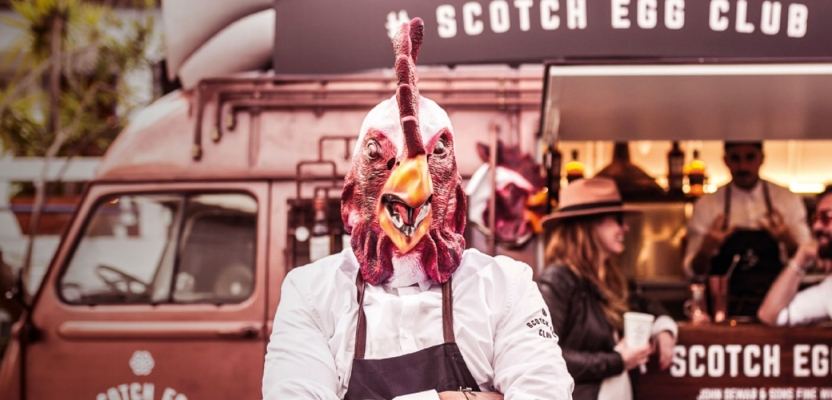It takes quite a lot of confidence to name an agency after yourself. But GLOCK founder and CEO Carsten Glock certainly doesn’t come across as arrogant. Indeed, he never even set out to create an agency at all. But how did he get there and where does he think the creative industries are going to lead him next? Let’s find out, shall we?
Tell us a bit about your role! Is there a “typical” day?

As the CEO and Chief Creative Officer, my day is split into many roles. On a day to day, I oversee a lot of the big projects taking place across the agency and my core involvement is to ensure that we are strategically set up well. I’m a big believer that if you prepare well, the rest of the journey is easy.
So I set out strategies and make sure my team stays on track – the secret is in collecting anybody who deviates off that road and setting them straight on their journey from A to B.
What was the biggest challenge in getting to your current position?
I’d say there have been a lot of ‘obstacles’, but they have all been opportunities and actually brought us to where we are now. I don’t spend time reflecting on the past, and that’s something we do across the agency – our only focus is on the now and spending time on being proactive.
What is your personal background and what role did it play in your career?

I never set out to create my own agency. There was never a grand career plan – and there still isn’t. I’ve just always been driven by doing what I enjoy and working to my strengths, but the main reason I set up GLOCK I suppose was the realisation that I can’t do it all myself. I don’t want to design every bit – there are people that are far better than me at those parts. That was the catalyst for putting different skillsets together to create a unit.
But I started out studying design and photography in Berlin and was constantly working through my studies as a freelancer. I came to London when I completed my studies to try something else. I’ve probably worked every design role there is – everything from photography to animation, at book publishers and agencies, both large and small. When I finished my role as Art Director for a magazine, that was when I decided to go out on my own.
What is your biggest career-related win? What is your biggest loss?
The biggest win I can pinpoint is probably realising that we were gaining the trust of big companies, even when we were still small. It really gave us the belief that we could do big things. The first time it happened, it was a real ‘imposter syndrome’ moment. You feel privileged to have been approached directly and have that contract with household names.
On the loss side, again, we don’t dwell on the past, and we’ve never even lost a client. There have been colleagues who have left the agency which felt like a big thing at the time, but it’s about spotting the opportunity in the hardship and using it to grow.
Which individuals and/or agencies do you gain inspiration from? Do you have any heroes in the industry?

I’ve never been one to benchmark myself or the agency against the industry, so all of my inspiration comes from books; from understanding the psychology of the audience and the people we’re creating work for; from colleagues; and of course from my wife and children.
Understanding people is a long journey. It’s not about optimisation, it’s about basic understanding. I have a keen interest in how those trends evolve which I find far more interesting than fashion and design trends. I’d much rather make things work in the long term and design stuff that will last beyond a short impact.
If you weren’t in your current industry, what would you be doing?
Architecture. I studied it for a few years but didn’t have the patience to see my designs become reality. But I still love it and take a lot of influence from the industry.
Photography would have been the other option, although I decided I didn’t want a career in it – I have too much love for it.
What’s your one big dream for the future of the industry?

For the industry to become more sustainable. We need to think more outside the box because we’re becoming too enclosed. It’s time for us to collaborate more and move outside of what we are used to.
What are your top tips for aspiring creative professionals?
Learn your craft and be flexible. Flexibility is the main thing, because if you are able to adapt and find different solutions for different challenges, rather than applying the same solution across the board, that’s how you will get ahead.
We see quite a lot of students straight out of university that don’t have the patience they need to thrive. They expect to be an art director from day one and try to skip the stage where they get to build a solid foundation.
I know how to set up files and send to repro and do all the technical things to this day. That foundation helps me know when and where to break walls or take shortcuts. But to try and take professional shortcuts at the start of your career doesn’t help.
What are your top tips for other creative leaders?

Listen. Too often, we as leaders believe that our way is the right way, but that’s not always the case. We also have to adapt to different problems and look at things from different perspectives.
Fairness isn’t always fair for everyone, and the people around you may not think that your ‘good deal’ is that good at all for them. You need to take both viewpoints into consideration, and that comes from listening.
When you think about your team, what is the thing that matters to you the most?
Dialogue. Being able to use each other’s strengths and being open about weaknesses makes us all better. Dialogue around this helps achieve better outcomes. It’s the main reason I started GLOCK as an agency, to collaborate with people better than me. I still tell people this to this day.
We are starting to see a culture where everybody wants to work from home and freelance, but they forget that they need to do all of that on their own. We live in big communities, big cities, but we are all trying to go into pigeonholes, when we really need to work closer than ever before.
Do you have any websites, books or resources you would recommend?

My favourite book is ‘Thinking, Fast And Slow’ by Daniel Kahneman – it’s all about how the emotional brain and working brain work together and finding solutions around how to deal with colleagues and surroundings.
Then I also listen to a lot of podcasts: Steven Bartlett’s ‘Diary Of A CEO’, ‘How I Built This’; ‘TED’ of course. I listen to a lot of German podcasts too – weekly news and current affairs magazine Der Spiegel’s podcast ‘To Live Smart’ and ‘Deutschland 3000’ are the main ones.






